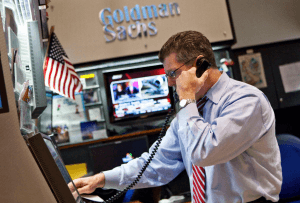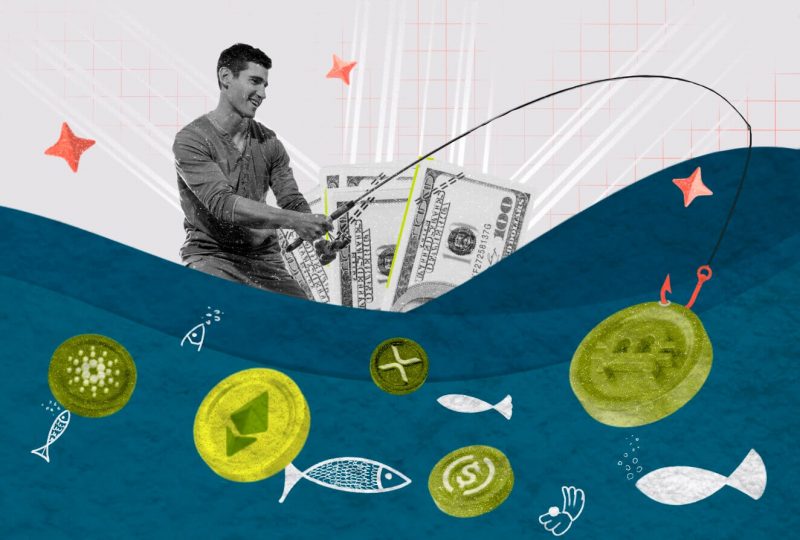Insider News: Goldman Sachs’ Top Equity And Credit Strategists Lay Out Their Approaches To Investing
Mar 20, 2022

Peter Oppenheimer spares no words: his business, Goldman Sachs, is cutting its predictions for corporate earnings and economic growth "virtually everywhere."
At a Monday media briefing, Goldman's chief global equities strategist and head of macro research in Europe said that the company is now forecasting profits growth of 5% for the S&P 500 and 2.9% for the US economy. This is below the firm's earlier forecasts of 8% profit growth and a 3.1% growth rate for the US economy.
The Russian invasion of Ukraine is the latest aspect contributing to 2022 being a more challenging year for markets than many analysts predicted. Commodity prices are soaring as supply networks are once again knocked off course, and inflation is at its highest level in 40 years.
Goldman's forecasts are not terrible – the GDP projection is broadly in line with the long-term trajectory of the economy. However, not long ago, analysts predicted an above-average year.
According to Oppenheimer, the reality for investors this year will be a market with a broad trading range and reduced stock returns. He said that the current economic cycle would be distinct from the last one, during which growth was rare and investors were ready to pay premium prices for companies that outperformed the general trend.
He anticipates a cycle fueled by excessive capital expenditure on decarbonization, the need for energy independence, and increased military expenditures in Europe. The cycle's greatest winners will be enterprises that experience high demand and can offer the financing that other businesses want.
"We believe that margin sustainability will become a much more critical factor for investors," he explained. "Lots of money will be required to scale up infrastructure in order to deploy these new energy sources, which expands the opportunity set for businesses that will provide that funding."
He is especially positive on commodities and commodity prices, saying that corporations in sectors such as oil drilling and mining have been hesitant to invest in previous years and will now be forced to do so.
"We've been fundamentally optimistic on commodities for some time now due to underinvestment in the commodity business after the collapse of demand due to the financial crisis," he said. "If we are entering a time of steadily increasing interest rates and growing inflation, we would expect real assets to take on a larger and more valuable position."
According to Oppenheimer, shares should beat bonds and cash throughout time, and his tilt to commodities comprises both shares in commodity producers and the commodities they create. Meanwhile, he says that increasing the monetary allotment made sense even before the conflict began. He maintains a neutral stance on credit and advises investors to underweight government bonds.
The credit markets have remained stable
Additionally, Chief Credit Strategist Lofti Karoui said at Monday's media event that there were two significant conclusions from the credit markets over the previous three weeks. One is that investors just do not anticipate a recession. The other is that investors continued to act rationally despite the shock to markets caused by the conflict in Europe.
He asserts that even bonds classified as quite unstable and well below investment grade at the CCC level fared well during the initial turbulence. That is a positive indicator.
"It's consistent with a market that believes high-yield issuers can survive a recession," he said, adding that corporate credit issuers' quality is higher than it used to be. "This is likely the best CCC batch since 2006-2007."
It's fortunate, as he said, that the current economic cycle is still in its beginning and that inefficiencies in the loan market have not yet developed. However, Karoui noted one significant difference between this cycle and the previous one: whereas the credit market was an excellent leading indicator during the economy's recovery in 2020-2021, its performance is now more closely tied to the stock market.
This suggests that investors should not wait for the credit market to signal an increase in bullishness.
"I absolutely do not anticipate credit to be the leading signal, as it was in March 2020," he added.
Meanwhile, he says that the contrast between the Fed's actions and those of the European Central Bank has heightened his optimism in the US market. This month, the European Central Bank surprised many investors by announcing its intention to end its emergency asset buying in the coming months.
"There is a policy gap," he noted, adding that he would be less bullish about Europe until the European Central Bank adopts a more dovish stance.




